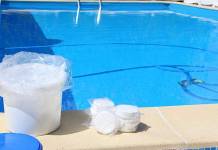
A group of scientists from Cambridge, Yale, and George Mason University has developed a ‘vaccine’ to combat fake news. Results of their study show people are less likely to believe false information when presented with it at first in small doses.
Their findings were published in the Global Challenges Journal on Monday, at a time when the U.S. and the world seem to need them the most.
The fake news phenomenon is spreading in social and mainstream media, reaching even the highest spheres of the American establishment.
Recently, the White House press secretary came under heavy fire for presenting “alternative facts” about Donald Trump’s inauguration crowds.
How did scientists conduct the study?

Sander van der Linden of Cambridge University led the team of behavioral scientists to survey a sample of U.S. citizens on a controversial topic that was often subject to much misinformation: Climate change.
Over 2,000 individuals were presented with different sets of information to see how exposure affects or distorts their perception of reality. The statement put to the test was: “there is no consensus on human-caused climate change.”
A first group took a look at an accurate piece of information in the form of a pie chart claiming 97 percent of all scientists agreed that global warming was real. These people later showed a more positive perception about the previous statement.
Next, surveyors showed another group of individuals a false campaign supported by 31,000 scientists who said there was no factual background for climate change. The group reported an increase in negative views on the statement afterward.
The third and final group saw both pieces and their effects were null. This preemptive survey shows the effects of accurate or false information on people’s perspectives.
How did scientists found the ‘vaccine’?
The group of researchers took the same medical principle behind vaccines and applied it to information: if people are exposed to a little bit of fake news, then they will be able to resist believing them later.
Tests showed this was, in fact, the case, as one group was shown the pie chart along with a brief overview of the fake campaign and another saw it with a detailed description including statistics and signers.
As it turns out, both groups reported strengthened beliefs on climate change consensus due to being exposed to false facts in opposition to real ones.
Van der Linden, leader of the study and main author of the paper ‘Inoculating the Public against Misinformation about Climate Change’ said the intention was to provide a “warning” that helped preserve the facts.
“THE IDEA IS TO PROVIDE A COGNITIVE REPERTOIRE THAT HELPS BUILD UP RESISTANCE TO MISINFORMATION, SO THE NEXT TIME PEOPLE COME ACROSS IT THEY ARE LESS SUSCEPTIBLE,” he said.
This first approach could be useful in further studies or new campaigns to fight this modern phenomenon, seen everywhere from Facebook and Twitter to international news channels.
Source: Global Challenges











